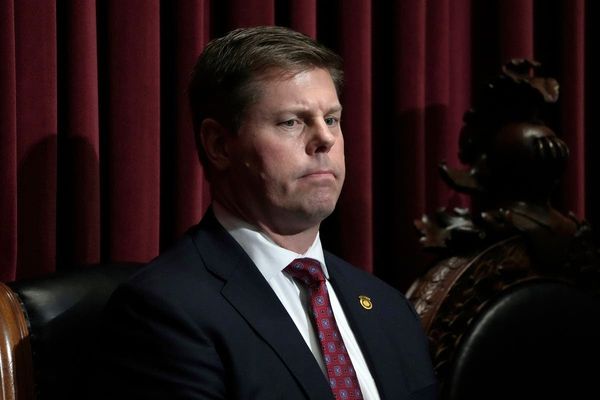
The territory budget has fallen short on addressing soaring cost of living, the peak body for social service says.
ACT Council of Social Service chief executive Emma Campbell welcomed investments in legal aid, health, the community sector and social services, but said she had hoped to see greater emphasis on addressing cost of living for Canberrans.
An increase of the Utilities Concession by $50 to $800 for low-income households is one of the few direct measures to support those struggling with soaring costs.
"The 2022-23 ACT budget has delivered significant investment in the ACT public service infrastructure and workforce," Dr Campbell said in a statement.
"The ACT government must now ensure that the same support is provided to the ACT community sector to modernise and develop, for example, through major investment in community facilities."
Tony Armriding is also tired of Canberra's perception as a public service town.
Mr Armriding is working two jobs, struggling to pool money for groceries and medicine and is soon to face finding a rental in Australia's most expensive city.
"It's my opinion that sadly, outside of the ACT, people look at Canberra as just being a city of public servants," he said.
"It's almost as if you're not a public servant, you do tend to fall by the wayside."
Mr Armriding lost work during COVID-19, and while he was able to re-skill and gain employment, he's earning less, but paying more towards a rental he and his wife moved into a year ago.
"What I'm now earning a fortnight is what I was earning a week previously - so I've had a 50 per cent pay cut on my earnings," Mr Armriding said.
"I think without exaggerating - we would have looked at 80 if not 100 different places [to rent] - and this was the only one that got back to us because we've got two small dogs."
Making the remaining funds stretch to other essentials is also a struggle he said.
"We're now paying $550 a week, so our cost of living has gone up but our income has has gone down considerably - 85 per cent of my wage goes to rent and bills," he said.
"The medication [script] that I recently filled a week ago was $110 for a fortnight's worth of medication for my wife, myself and our two dogs.
"Finding $110 a fortnight for medication on top of rent and everything else is is tight."
Weekly median rents rose another 2.2 per cent over the June quarter in Canberra, and the waitlist for public housing has blown out to more than 3000 applications.
Mr Armriding said he had considered applying for public housing, but his income is too high.
The budget set aside $30 million to deliver 140 of the 400 new public houses promised by 2025, while a further $57.2 million will go to maintenance and repairs.
Mental health services also received $37.5 million while specialist homelessness services were bolstered with $7.2 million.
ACTCOSS is also pushing for more funding for the community sector.
"Investment in community organisations supports our local economy by delivering significant return on investment through improved social outcomes, jobs and spending in the local economy," Dr Campbell said.
The Reserve Bank of Australia also lifted the official cash rate on Tuesday by 50 basis points to 1.85 per cent.
Federal Treasurer Jim Chalmers admitted it would be a "difficult day" for mortgage holders.
"This is about a difficult day for Australians with a mortgage," he said.
"Another difficult day I think everybody is bracing for the interest rate rise that the governor and the Reserve Bank board has flagged."
Announced in July, Canberra's residential rates are also set to rise by an average of 3.75 per cent this year.
Though some suburbs are seeing much higher hikes.
Rates for houses are set to increase the most in Duffy and Fisher, both up by an average 8 per cent.
House owners in Duffy will pay an average $2981 for the year, up from $2770 last financial year. In Fisher, households will pay an average $2932 in rates, up from $2724 last year.
Our coverage of the health and safety aspects of this outbreak of COVID-19 in the ACT is free for anyone to access. However, we depend on subscription revenue to support our journalism. If you are able, please subscribe here. If you are already a subscriber, thank you for your support. You can also sign up for our newsletters for regular updates.







